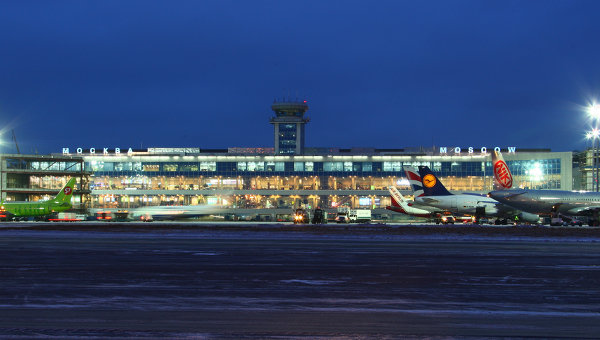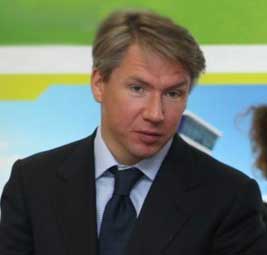By David Gold
July 6 – Russia 2018 has been learning from Ukraine and Poland’s ultimately successful hosting of this year’s UEFA European Championship.
Euro 2012 came to an end last Sunday (July 1) as Spain crushed Italy 4-0 to cap a memorable tournament.
But preparations for the event did not go smoothly, and had been affected by concerns over the development of infrastructure and stadiums.
Alexey Sorokin (pictured above), the chief executive of Russia 2018, spent time in Warsaw, Kiev and Donetsk during the tournament as part of an observer mission, and said he learned some useful lessons from their neighbours’ experience.
“Probably the major lesson is that we can not overstate the importance of early planning, but in general there is nothing impossible,” he told insideworldfootball.
“We saw how it is done, we are certain that we can organise it.
“Of course we have to take into account that a FIFA tournament is larger than a UEFA one.
“It takes longer, has possibly more fans coming, but the general principles are the same.”
During their visit, working sessions took place for airport operators – useful for Russia, whose vast size and long distances between host cities poses a logistical challenge.
For example, Kaliningrad, situated between Lithuania and Poland, is some 2,500 kilometres from Yekaterinburg, which in turn is just over 2,000km from Sochi.

This means that air infrastructure is crucial for Russia, whose aviation plans for 2018 were judged as high risk by FIFA during the bidding process for the tournament.
“We are very grateful to UEFA as it was very helpful, well organised and informative,” Sorokin added.
“After the Euros we certainly have a lot more understanding about how to best organise it, what organisational challenges there are.
“There is a lot of infrastructural development we have to undergo but there is nothing extraordinary and nothing we would regard as impossible.”
Investment in the Russian rail network will also go some way to easing the demands on air traffic and capacity.
Not only does Russia face a significant challenge developing their transport networks, but they also have much work to do constructing stadiums for matches.
Every stadium used will have been either renovated or constructed anew.
Sorokin said that despite having six years to carry out work, they were keen not to waste time.
“It passes quickly, we try not to lose time, and try not to wait until Brazil is over,” he explained.
“We started our work straight after we received the right to host it.
“We are doing our best to keep the pace.”
Contact the writer of this story at zib.l1751844063labto1751844063ofdlr1751844063owedi1751844063sni@d1751844063log.d1751844063ivad1751844063

